Top 10 Branding Services for Startups (2026)
Discover comprehensive branding services for startups, including strategy, visual identity, and messaging to position your new venture for success.

At Parallel I work with founders who are trying to turn clear ideas into companies. Trust and authenticity answer many early questions. Research data from 2024 shows that 81% of consumers need to trust a brand before they will buy and 86% believe authenticity is essential. More than half of first impressions come from visuals and consistent branding can increase revenue by up to 23%. These numbers illustrate why branding matters even before you have a product–market fit.
When I say “brand” I don’t just mean a logo. A brand is the story you tell, the tone you use, your design, your behaviour and the values you embody. For early‑stage companies that story isn’t always obvious. Focusing solely on features leaves customers guessing and wastes marketing. By investing in branding services for startups you’re investing in clarity and trust.
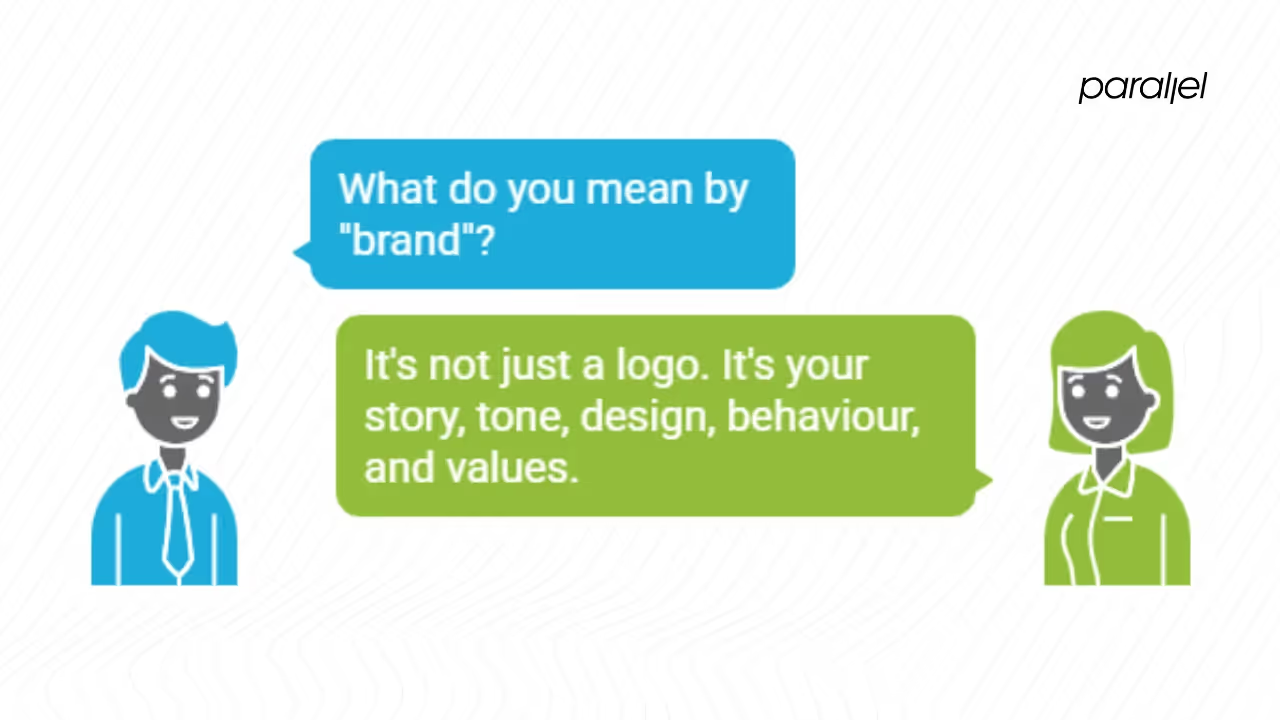
In this article I’ll unpack what such services include, how to evaluate potential partners and introduce 10 agencies (including ours - Parallel) that specialise in helping startups build a memorable identity. Along the way I’ll reference data, share patterns from my experience and keep things practical.
Top 10 branding services for startups
Below is a curated list of ten agencies, each with a distinct approach to serving early‑stage companies. My descriptions focus on why they work well for startups rather than on generic accolades.
1. Parallel
Parallel is where I work, so this perspective is built from first‑hand experience. We’re a collective of designers and strategists who believe branding is part of product strategy. Rather than separating marketing and product, we see them as one conversation. We start by understanding your market, your users and your goals. We then craft naming, narrative and visuals that communicate your value clearly.
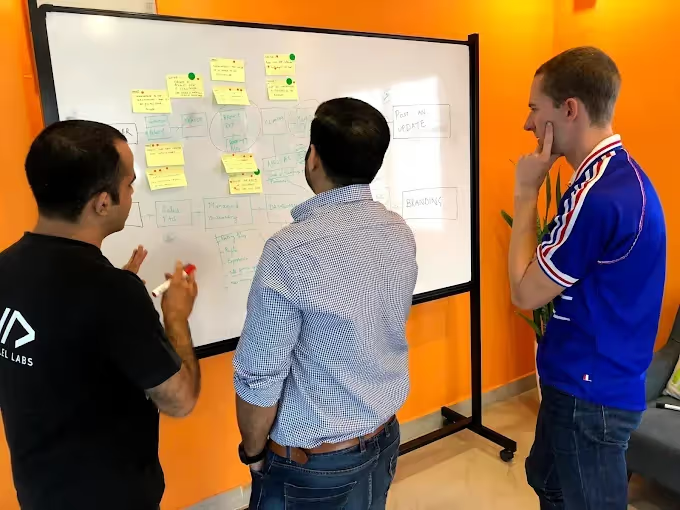
Our team supports pitch deck design, investor materials and UI design, ensuring brand consistency across every touchpoint. The result is a scalable identity that evolves with you.
Best for: Founders who need fast but thoughtful delivery, want direct collaboration with experienced designers and appreciate a product‑driven approach. Parallel’s offerings include strategic positioning, identity design and implementation support.
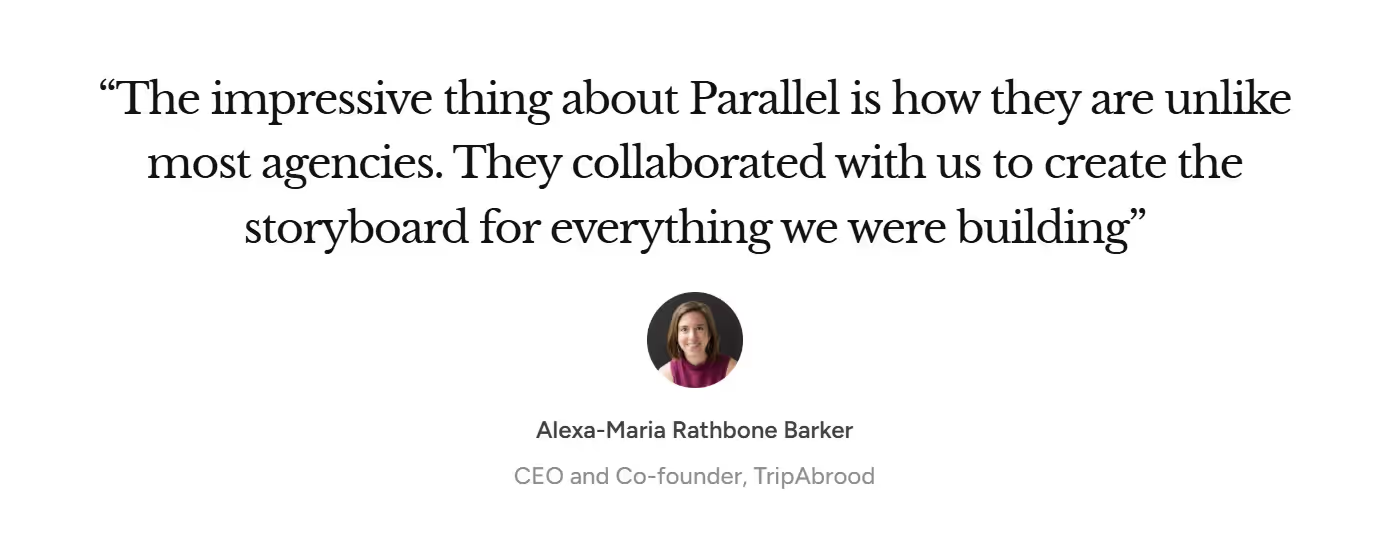
2. The Branx
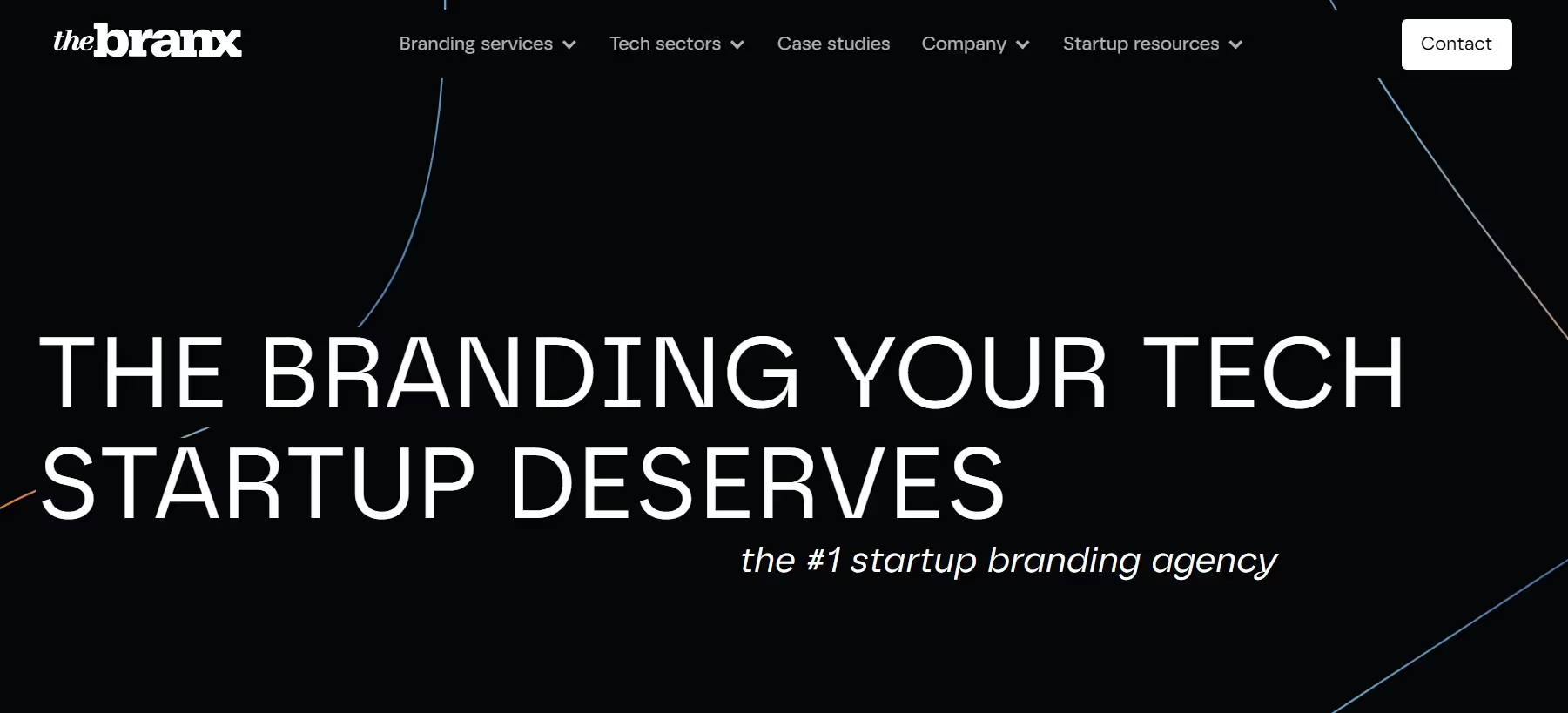
The Branx specialises in tech startups. Their service menu encompasses brand strategy, brand identity, motion graphics and web design. They promise a strategy that fits your brand needs, including audits and messaging and offer powerful branding to maximise your value. They also provide illustrations and motion graphics and deliver functional websites quickly. For lean teams this one‑stop shop is appealing.
Best for: Tech founders needing both a strong identity and a polished website in a short time. If you value speed and cohesive visual execution, this is a solid choice. These services suit teams that want to launch fast without cutting corners.
3. Ramotion
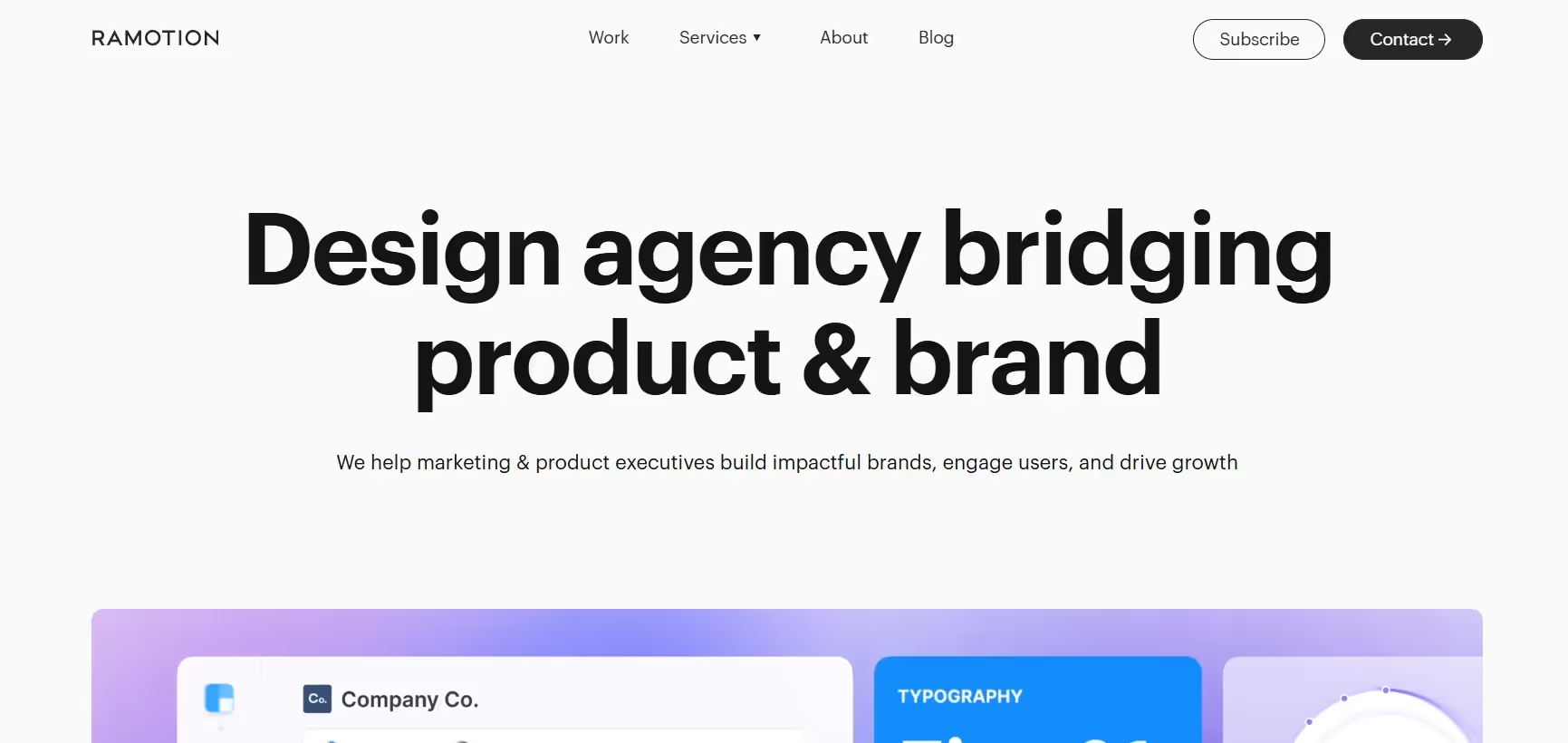
Ramotion is a design studio known for blending product design with branding. Their startup offering begins with a clear statement: a strong brand starts with strategy and positioning. Services include naming and verbal identity, visual language, logo design, brand architecture and guidelines. Their design strategy bridges research and execution, ensuring scalability. Their portfolio features both B2B and consumer products.
Best for: Companies from seed to Series A that need strategic positioning as well as deep product design expertise. Their full‑stack capabilities make them a fit for SaaS startups planning to scale quickly. These offerings emphasise holistic thinking and technical execution.
4. Embark
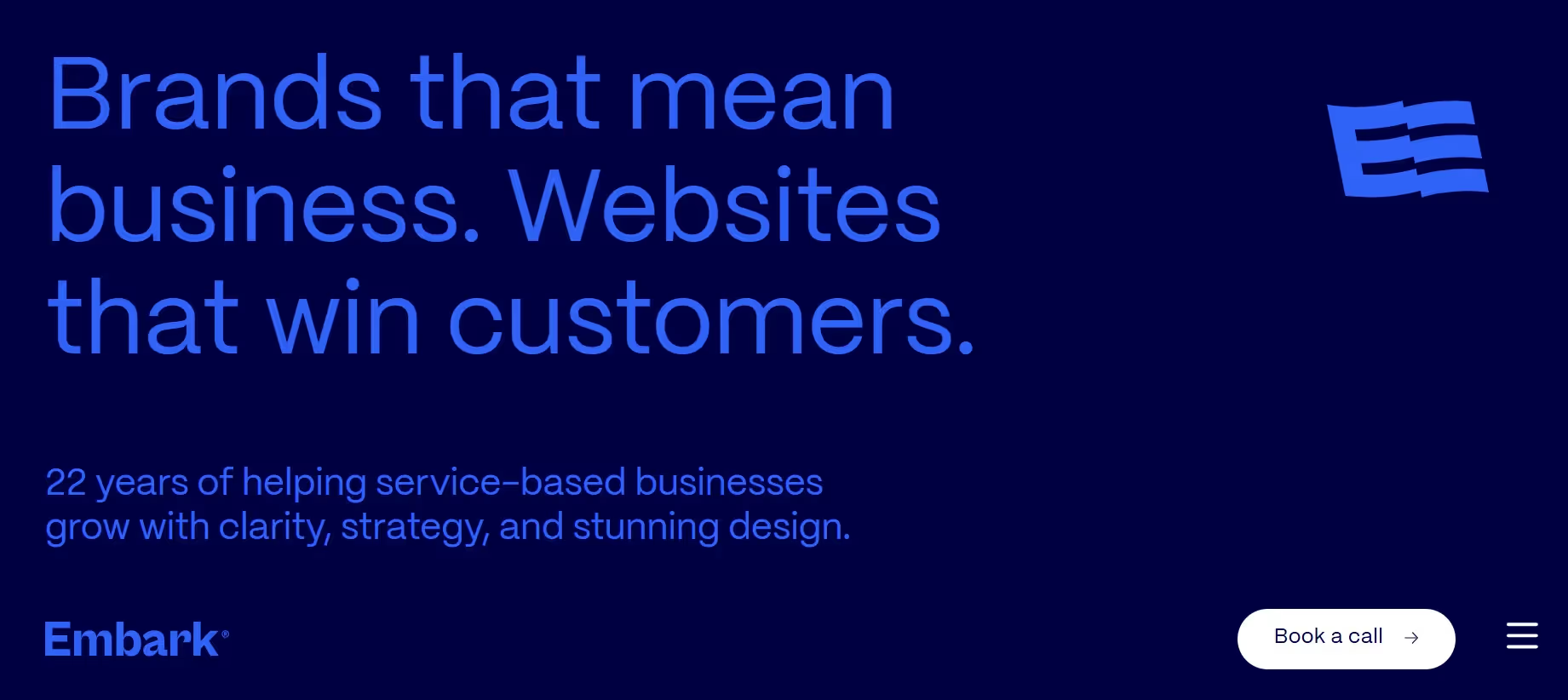
Embark is a boutique marketing agency that advocates for the value of consistent branding. They cite research showing that consistent presentation can increase revenue by up to 23% and emphasise shaping customer perceptions at every touchpoint. Embark provides affordable full‑service branding with data‑driven tactics. Project minimums start around $5k, making them accessible to small teams.
Best for: Founders who want boutique attention without enterprise pricing. Their approach is ideal for nonprofits and small businesses that need guidance on branding and marketing. These offerings work best when you value one‑on‑one collaboration.
5. Superside
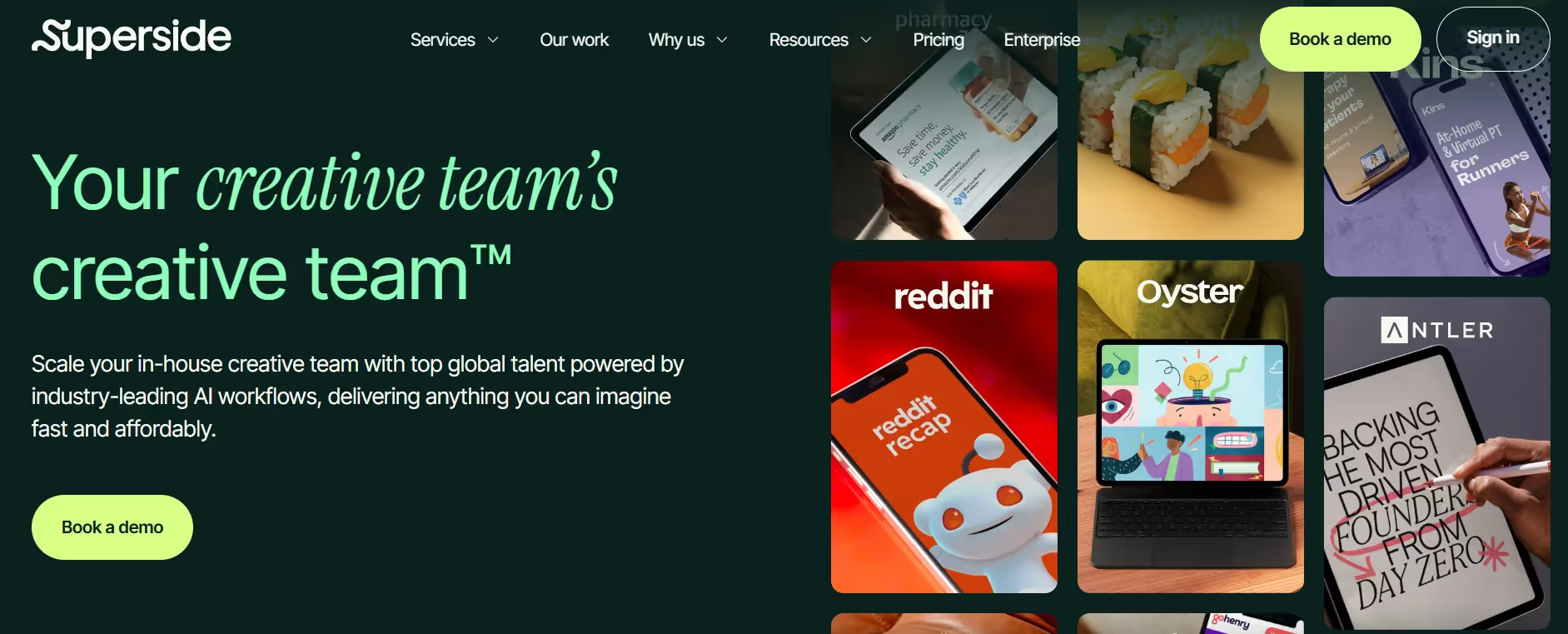
Superside positions itself as an on‑demand creative service. Their 2025 article calls branding a top priority and notes that they’re well‑versed in startup brand development. Superside’s subscription includes logo design, visual identity, style guides and messaging. They highlight that up to 46% of consumers will pay more for trusted brands and remind readers that consistency can grow revenue by 23%.
Best for: Teams seeking flexible subscription access to a large pool of creatives. Superside scales with you and offers fast turnaround times. Their services are suited to growth‑stage companies that need ongoing design support, not just a one‑off project.
6. Halo Lab
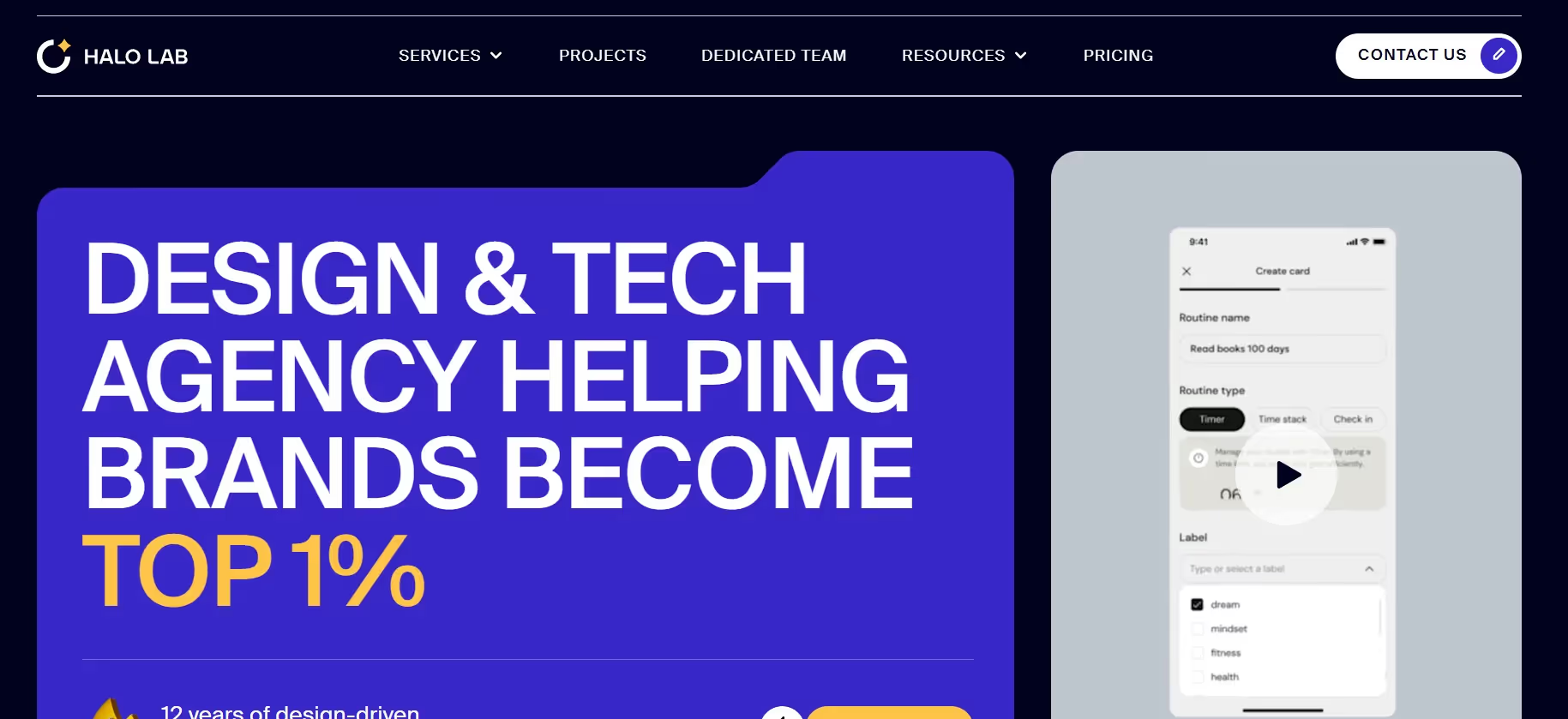
Halo Lab is a full‑service branding partner emphasising future‑proofing. Their core services include brand strategy and market positioning, naming and messaging, visual identity and custom logo, style guides and professional rebranding. They claim that a clear process reduces decision‑making time and boosts recognition. Packages range from basic (one‑week research and moodboards) to full (twelve weeks including animation and social kits).
Best for: Companies wanting a comprehensive, research‑driven process with clear packages and timelines. Their detail oriented approach suits founders who value documentation. These offerings help ensure long‑term relevance.
7. Motto
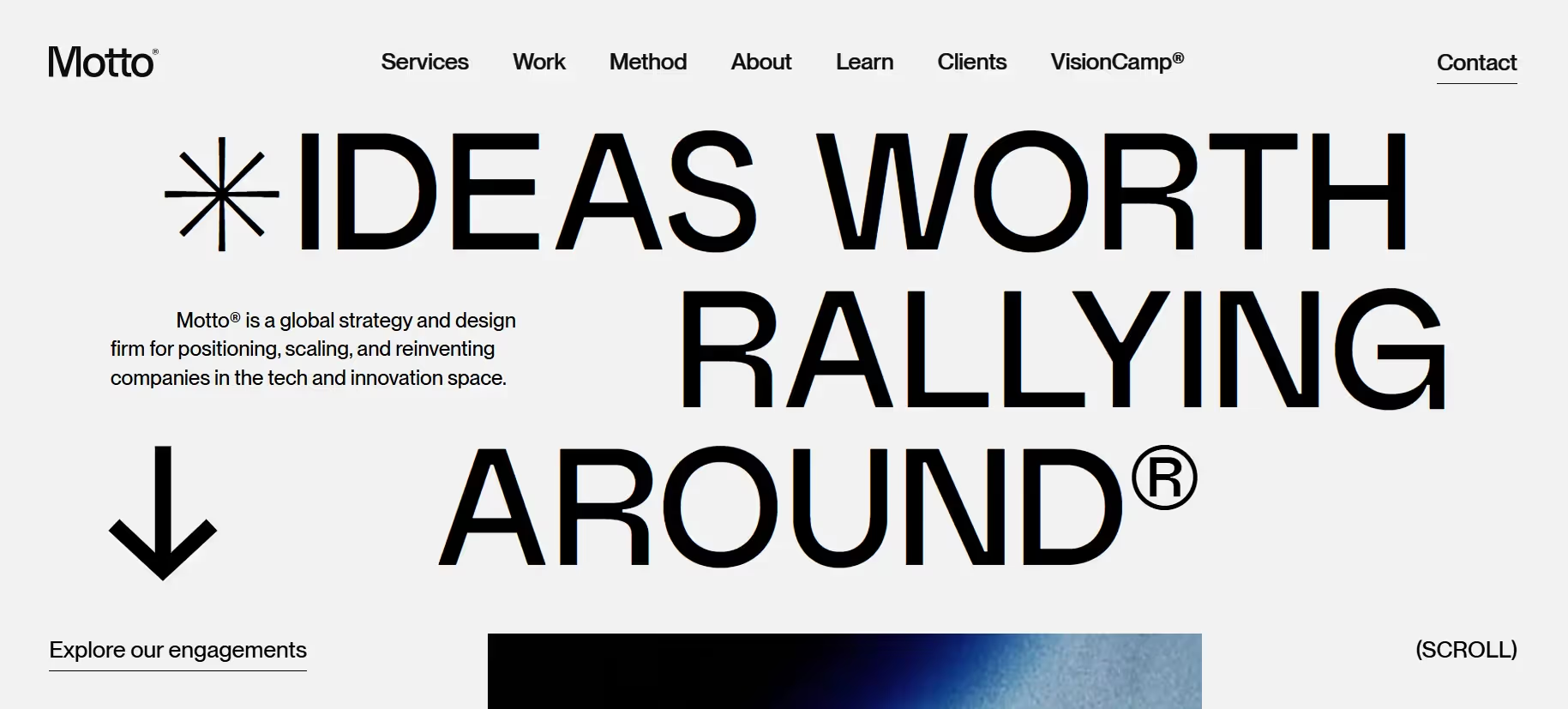
Motto describes itself as an “audacious brand architect.” They specialise in building brands that stand for something. With a focus on strong narratives and bold visuals, they push clients to clarify their mission and differentiate beyond design. Their style is opinionated and high‑end, and they engage deeply with clients through strategic workshops.
Best for: Founders aiming to build movement‑driven or mission‑led brands. If you’re seeking a provocative voice that challenges conventions, Motto’s services might resonate.
8. Character
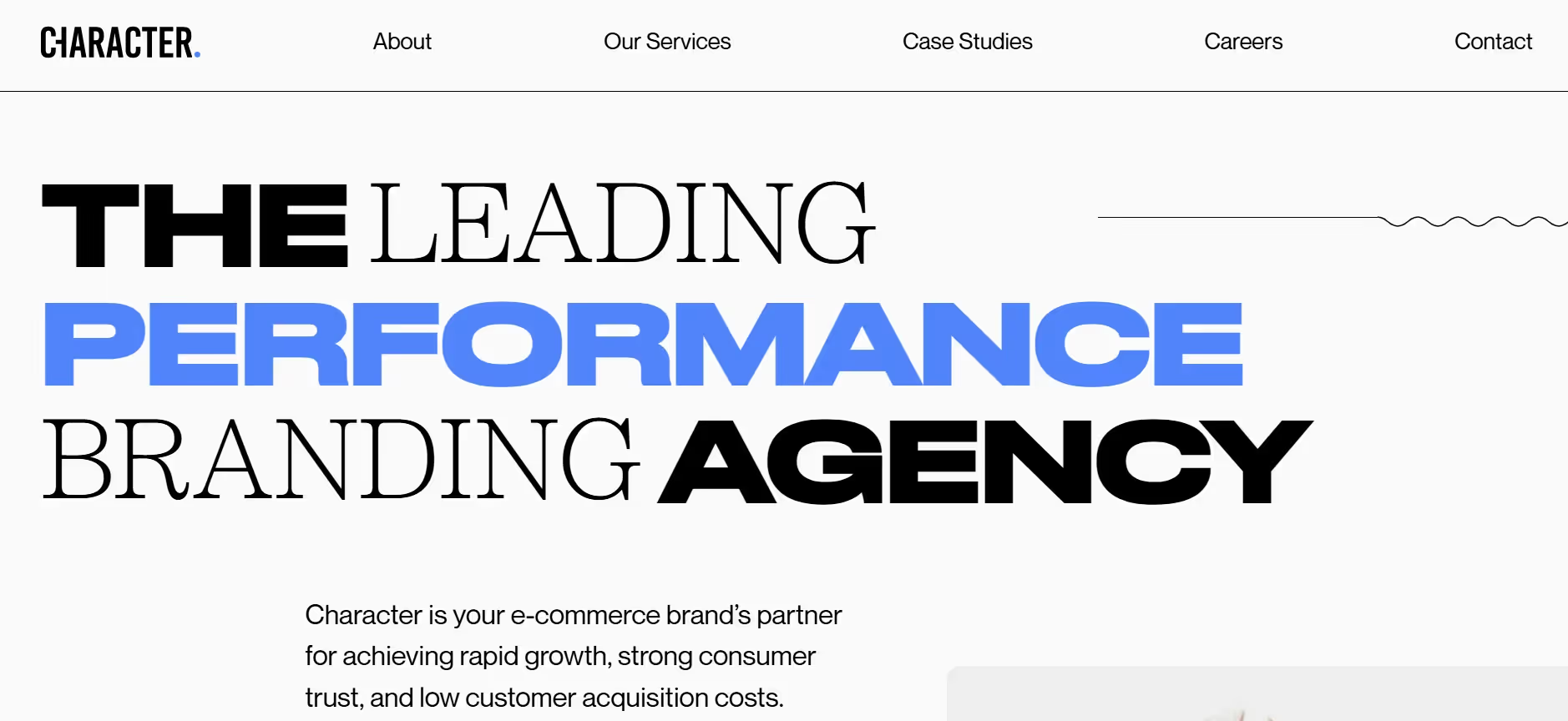
Character is a San Francisco agency blending storytelling with modern design. They work with both startups and enterprises, emphasising brand cohesion across every touchpoint. Their expertise ranges from naming and identity through packaging and digital design. They pride themselves on thoughtful storytelling and robust systems.
Best for: Startups ready to formalise their identity for the next growth stage. These services suit teams in transition who value narrative depth and visual cohesion.
9. Red Antler
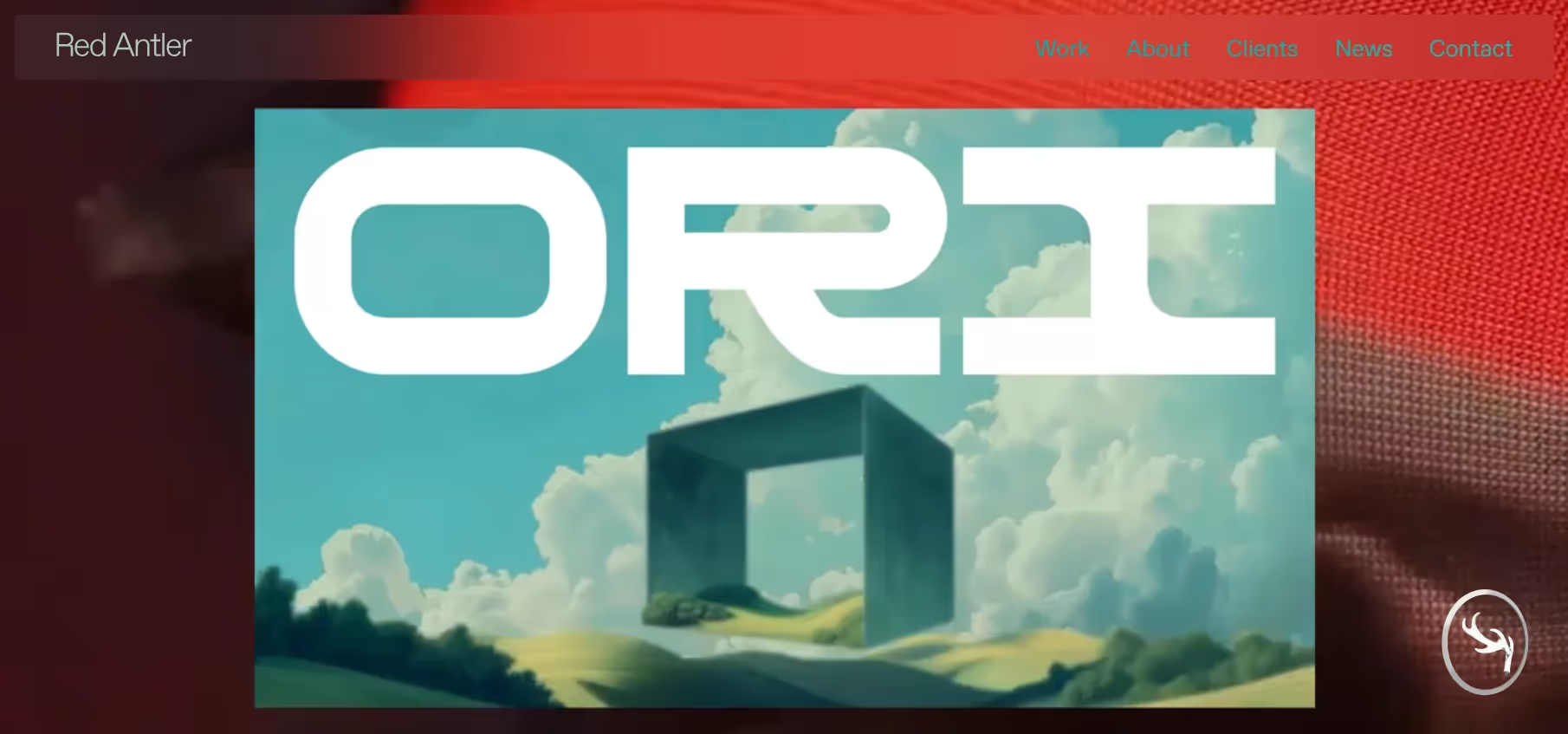
Red Antler is famous for launching brands like Casper, Allbirds and Hims. They operate like a creative and strategy partner combined. Services include naming, strategy, identity, packaging and marketing. They emphasise brand consistency across product, packaging and marketing experiences. For consumer‑focused startups looking to build cult followings, Red Antler’s track record is unmatched.
Best for: Consumer brands and direct‑to‑consumer startups seeking end‑to‑end support from naming to marketing. Their services are premium, so they suit teams with budgets to match their ambition.
10. Focus Lab
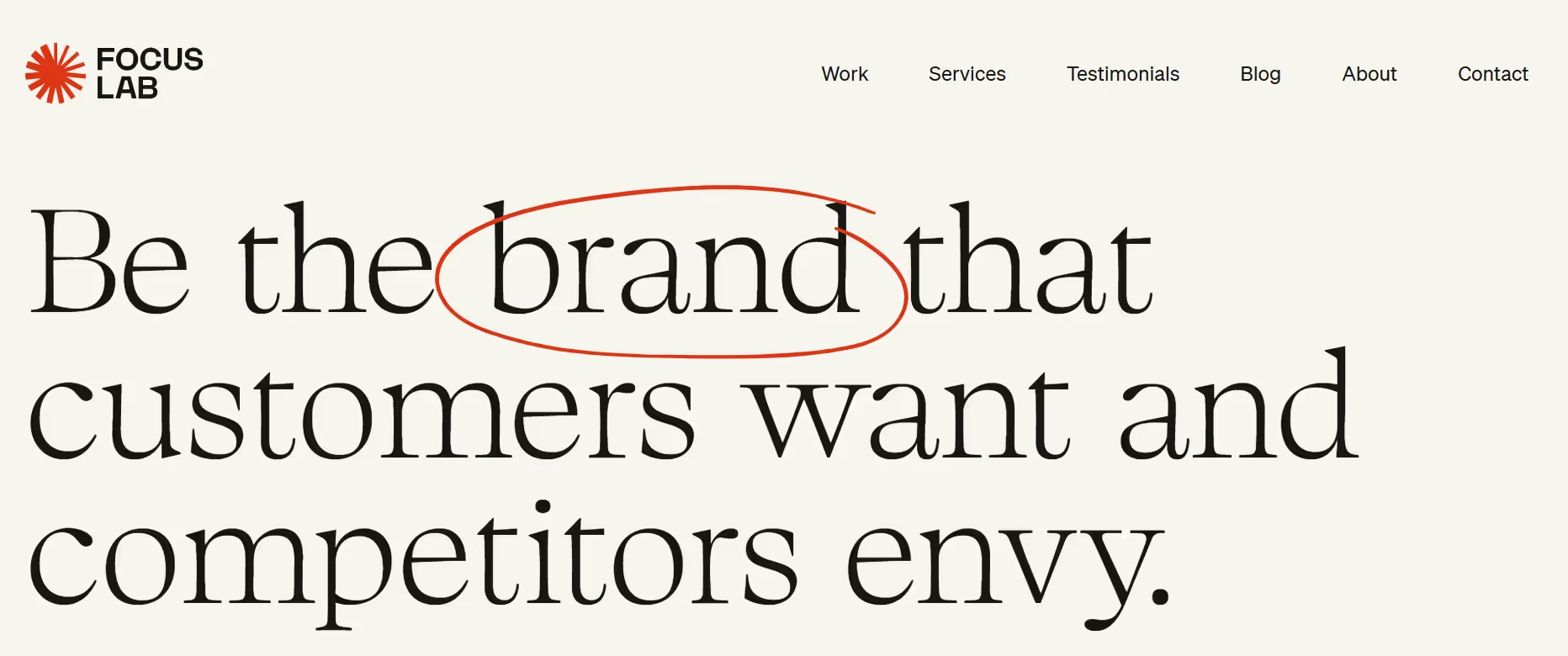
Focus Lab pairs deep strategy with minimalist design. They’re known for clear processes and comprehensive brand guidelines. While they often work with mid‑stage B2B companies, their focus on clarity and systems also benefits early‑stage teams. They use workshops to align stakeholders before exploring visuals. The result is a detailed brand guide covering logo usage, messaging and tone, ensuring that internal teams maintain consistency.
Best for: Startups wanting polish and strategic depth, particularly those in B2B and SaaS sectors preparing for fundraising. These offerings emphasise detailed documentation and collaborative workshops.
How do you choose the right startup branding partner?
Not every branding firm suits every company. Here are a few guidelines I’ve learned from guiding founders through the search process.
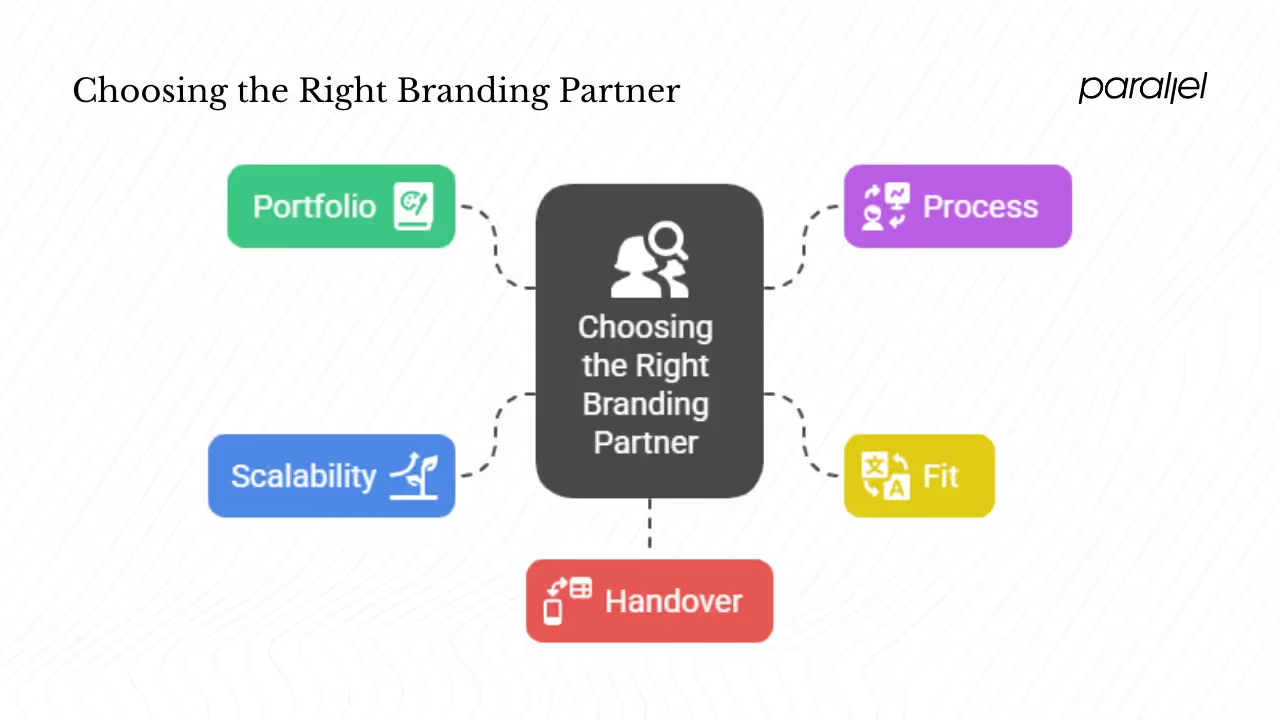
1) Look at their portfolio. An agency's portfolio provides tangible evidence of its capabilities. When reviewing it, determine if the agency has a history with companies at a similar stage to yours. The variety of aesthetics and narratives in case studies indicates a capacity to develop an identity suited to your specific market, rather than applying a repetitive style.
2) Understand their process. An agency's process dictates a project's foundation and efficiency. A methodology that integrates research with design from the beginning, often through focused workshops, grounds the creative work in market realities. The logic of this approach is to produce a minimum viable brand that is both well-conceived and quickly developed.
3) Evaluate for fit. Beyond the creative output, operational compatibility is critical. This involves assessing if the agency's communication style and workflow are suitable for your team. Practical constraints like budget and timeline must also be addressed. A successful outcome depends on the ability to operate within your organization's pacing and resource limitations.
4) Check scalability. Your identity should grow with your business. Ask whether the firm has experience scaling brands from seed to Series B and beyond. Services like brand architecture and family design help organise multiple products under a unified identity.
5) Ask about handovers. The project's conclusion is as important as its start. A thorough handover ensures the brand can be implemented accurately by your team long after the engagement ends. Without clear documentation, such as brand books and style guides, consistency is difficult to maintain. Clarifying which files and guidelines will be provided is a necessary step to protect the brand's long-term integrity.
Choosing the right partner isn’t just about portfolio glamour. Focus on process, fit, scalability and handover as you explore the branding services for startups outlined above.
Conclusion
A distinctive identity is one of the most leverageable assets you can build early. Consistent branding increases revenue by up to 23%, and more than half of first impressions are visual. Meanwhile 81% of consumers need to trust a brand before purchasing and 86% believe authenticity matters. Those numbers underscore why design alone isn’t enough; your brand must tell a clear story and deliver on it consistently.
As you consider your options, evaluate partners by looking at their portfolios, processes, cultural fit, scalability and handover materials. And if you want a team that integrates brand and product strategy, we’d love to chat at Parallel.
Whatever path you choose, treat your brand as an investment rather than a cost. By prioritising branding services for startups you set the foundation for customer trust, market differentiation and sustainable growth and success.
FAQs
1. How much does a branding service cost?
Pricing varies widely. According to Embark’s research, startup branding packages range from $5,000 to $50,000 depending on scope and agency. For a lean identity and strategy you might spend around $10k, while comprehensive rebranding including strategy, naming, visual design and collateral could exceed $25k.
2. How do I brand my startup?
Begin with a clear strategy: articulate your mission, values, audience and position. Then design your identity: logo, colours, typography and visual system. Develop messaging frameworks and digital assets. Finally, implement consistently across websites, products and marketing. Many founders partner with agencies or consultants to guide this process. Superside notes that most companies allocate up to 20% of their marketing budgets to branding, emphasising its importance.
3. What is a branding service?
A branding service is a professional package that helps companies define, design and express their identity across all touchpoints. It includes research, strategy, naming, visual identity, messaging and implementation support. The goal is to ensure your brand remains cohesive, scalable and true to your mission.
4. How much does it cost to start up a brand?
If you’re bootstrapping you can assemble a basic identity using templates and freelancers for a few thousand dollars. Professional packages start around $5k for lean identities and can reach into the mid‑five‑figure range when including comprehensive strategy, research and assets. Remember that 36.5% of US shoppers feel more loyal to brands they purchase frequently, so investing in a solid identity can pay dividends in customer loyalty.

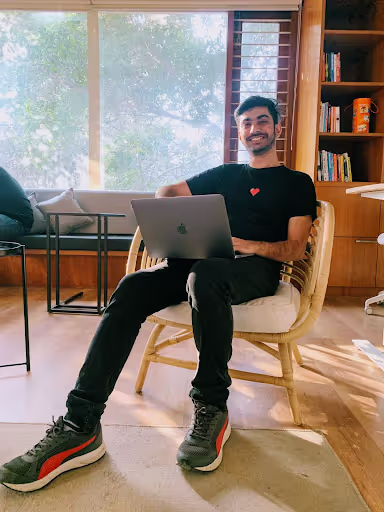



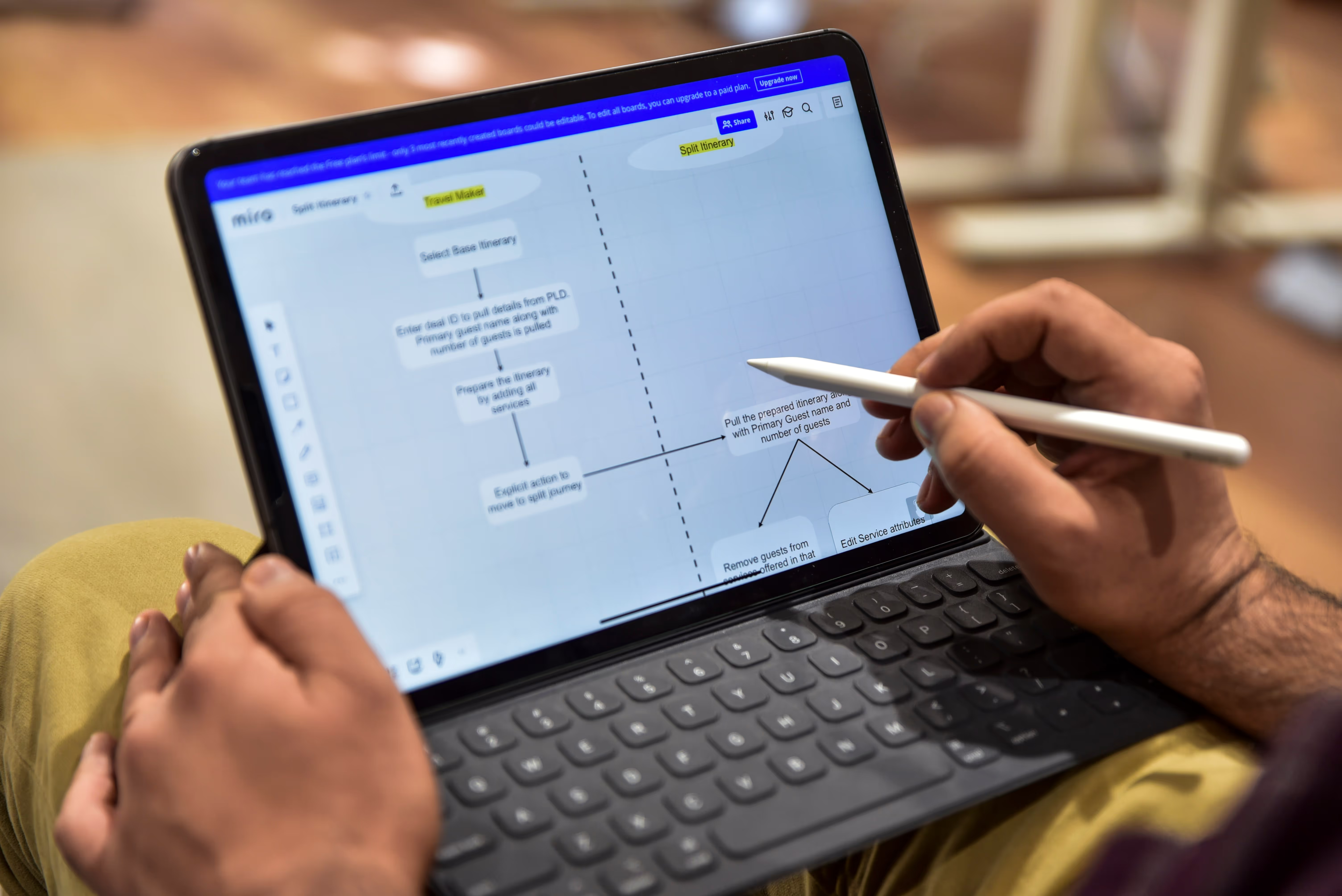


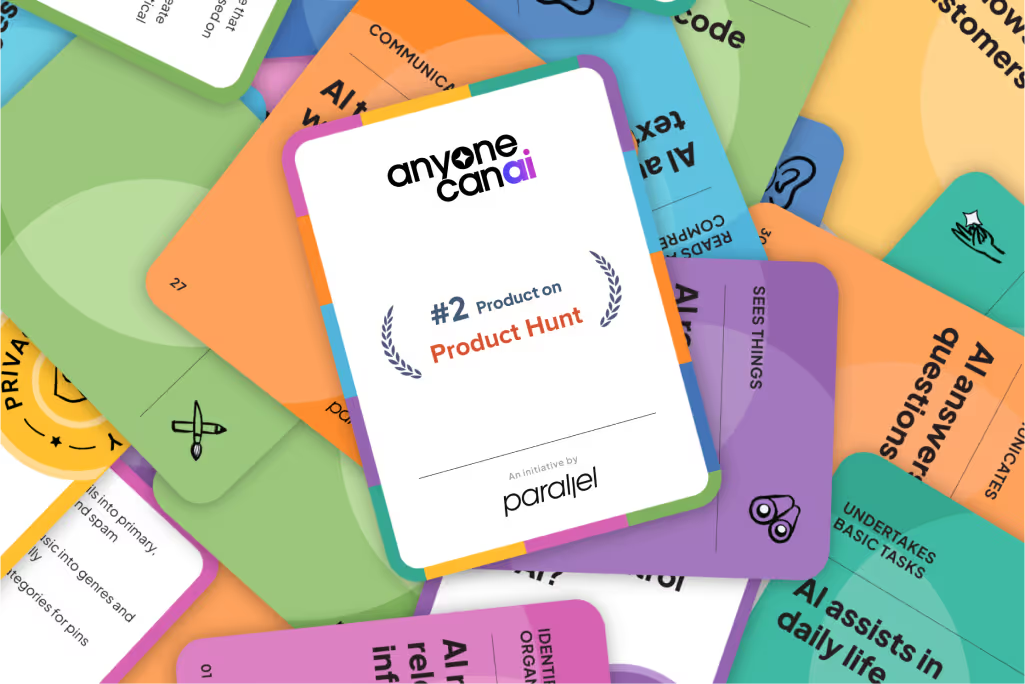

.avif)


